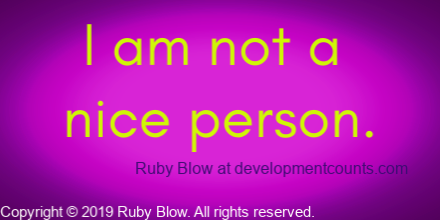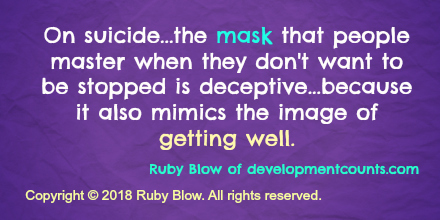Saying Goodbye
One of the most difficult tasks we face in life involves “endings.” Those times when we have to say goodbye to someone, something, or some experience.
Despite the fact that we have plenty of opportunity to practice…we have often have difficulty with endings, transitions, change, and saying goodbye to the way things used to be.
That difficulty can be expressed as:
- avoidance,
- aggression,
- passivity,
- resistance, and
- numbness to a name a few.
Our Feelings and Coping Strategies
Our ability to “disconnect” from our feelings is a coping strategy that is employed intentionally and sometimes unintentionally, but more so as an automatic response when our feelings become too much to bear.
- Saying goodbye;
- our experiences of endings; and
- what we tell ourselves about them…
…have a deep and lasting impact across multiple variables in life. Including everything from how we argue to how we initiate or choose not to initiate new relationships or business and professional relationships.
How We Argue
The way we argue or approach conflict reveals what we think is acceptable in terms of how we might choose to end a relationship or push someone away through our words or actions. The words we choose, our tone of voice, and our honesty or lack thereof reveal our ultimate values and whether or not we choose to build, destroy, or let things and people fall away.
Initiating New Relationships
When we are initiating new relationships of any kind (personal or professional) we –
- go in with either an awareness of our intentions and expectations,
- a partial awareness, or
- no awareness.
Our fears, hopes and expectations ride along with us…whispering in our ear… supporting or sabotaging us along the way.
Unsatisfactory Goodbyes
There are so many ways to have unsatisfactory goodbyes that result in:
- regret,
- misunderstanding,
- hurt, or
- confusion.
Making Our Goodbyes More Fulfilling
How can we make our goodbyes more fulfilling?
It certainly depends on the type of goodbye…but here are three general principles to consider when it comes to endings, transition, and change.
- Be authentic in your expressions toward others! A good friend of mine began saying “I love you” at every parting with friends and family (even via phone) after her grandmother died when my friend was in high school. Her grandmother basically functioned as a parent in her household due to her father’s struggle with substance abuse. As a result of this early and significant loss, she made an agreement with herself to be authentic and express her feelings to those she loves at every point of contact. This is a beautiful example of leaving nothing unsaid, in the most positive of terms.
- Be willing to let go of what was to accept what is! When we are willing to chart a new course we begin to let go of the idea of how things were and how they should be. When we let go of what was by honoring the change that has occurred or is occurring, we give ourselves permission to be in reality. When we push back against or fight what is really happening we don’t have a chance at getting to “okay.” Feeling better starts with acceptance and letting go!
- Lastly, when it comes to transition…acknowledge what is working and what is not working. Don’t over inflate how good a situation or circumstance was…we tend to look favorably upon even very difficult circumstances. Primarily because they are our experiences and we tend to develop a form of loyalty to our jobs, relationships, homes etc…even if there is an obvious necessity for change or if change is hoisted upon us. Even in the process of death there is often suffering or a significant loss of quality of life. Supporting our loved ones continued suffering (by mentally pushing for life when “life” as that person would want it is no longer possible) so that we don’t have to experience life without them is a form of selfishness that is rarely challenged. Death is the major life transition. We cannot stand in its way. We can only try to live as fully as possible out of respect for its inevitability.
The experience of loss is part of what adds meaning to life. Without loss, we have very little or no chance at appreciating all of those things, people and experiences that life has to offer.
Copyright © 2015 Ruby Blow. All rights reserved.
Share your thoughts on Linkedin, Facebook, Twitter





